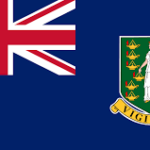
The British Virgin Islands are located between the Atlantic Ocean and the Caribbean Sea, at the northern end of the Leeward Islands, 100 kilometers off the east coast of Puerto Rico, adjacent to the United States Virgin Islands. Columbus arrived on the island in 1493. It was annexed by England in 1672. In 1872, it became part of the British colony of the Leeward Islands and was under the jurisdiction of the Governor of the Leeward Islands until 1960. It is now a British territory. The current trademark regulations in the British Virgin Islands are mainly based on the April 2013 version of the Trademark Law and the April 2015 version of the Trademark Regulations. The new laws came into effect on September 1, 2015, allowing the trademark legal system in the area to directly enter the 21st century from the 18th century. The official language of the British Virgin Islands is English.
Before the implementation of the new law in the British Virgin Islands, there were two ways to register: one was to extend protection based on UK registration, and the other was to apply for registration directly locally. Since September 1, 2015, the registration method based on UK registration is no longer applicable.
Applicants can apply for "single country registration" locally. If the applicant does not reside in the British Virgin Islands, they must entrust a local specialized agent to handle it. The basic materials required for trademark application are: 1. Trademark design; 2. Specific product items; 3. Name and address of the applicant; 4. The power of attorney needs to be notarized; 5. The application statement needs to be notarized. The British Virgin Islands adopts the Nice classification and accepts multiple types of applications. Trademark registration generally takes about 6 months to 1 year, with an opposition period of 3 months after the initial announcement of the trademark. If there is no objection or the objection is not established during the announcement period, the registration certificate will be approved and issued. The trademark registration in the British Virgin Islands is valid for 10 years from the date of application: renewal can be processed within 12 months before the expiration date, with a grace period of 6 months: renewal is valid for 10 years. If a trademark is not used continuously for three years after registration, anyone can apply for revocation.
How about your trademark application success rate? We will provide you with sophisticated trademark research which will enable you to ensure the success of your trademark registration.
Our monitoring system tracks trademark registrations in over 100 countries simultaneously and provides timely alerts.
Hire our local trademark attorneys to file your trademark for registration. Take advantage of our simple, fast and efficient process.
Our attorneys will prepare and file a renewal application for your trademark to ensure your trademark is protected for the next 10 years.
Explore some of the most popular and exciting destinations around the world. Whether you’re seeking adventure, relaxation, or cultural experiences, these countries offer something for everyone